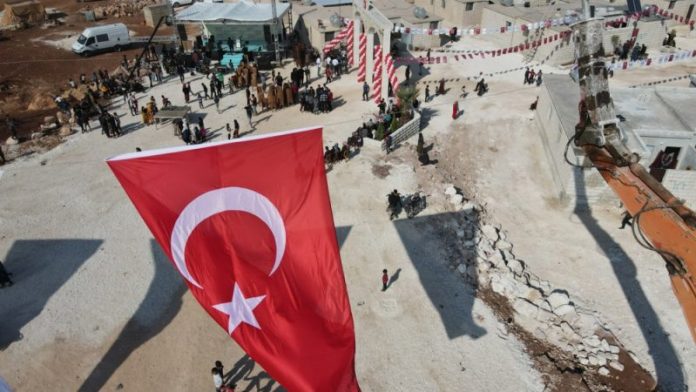European Union auditors stated on Wednesday that they could not identify whether some of the billions of euros given to Turkey to address the Syrian refugee issue were actually having any impact, according to Kathimerini.
Under a 2016 agreement between EU leaders and Turkey, the bloc pledged to provide Turkey with at least 6 billion euros ($6.4 billion) to cope with migrants arriving from Syria. Turkey, in turn, pledged to prevent migrants from leaving its territory for Europe.
In March 2016, a month after the agreement came into force, the Turkish government reported that the number of migrants crossing illegally into Greece had fallen from about 6,000 per day in November 2015 to about 130 per day.
In 2021, leaders announced plans to send another 3 billion euros ($3.2 billion) for refugees in Turkey. The pact, which was seen in Europe as a great success, served as a model for other, more recent and more elaborate, agreements with Tunisia and Egypt.
However, the European Court of Auditors (ECA), after reviewing the money’s effectiveness, claimed last year that Turkey’s education ministry refused to provide information that could have allowed them to assess the impact of EU projects, ECA member Bettina Jakobsen claimed.
I’m quite sure that European citizens would like to see some results coming out of the various development and humanitarian projects that the EU is funding.
According to the European Commission, at least 530 million euros ($566 million) was earmarked to ‘”quality inclusive education of refugees in Turkey.” It was intended to pay teachers’ salaries and provide teaching equipment, Turkish language and teacher training, as well as counselling and other guidance.
The auditors requested a list of schools receiving EU support and the number of refugee students attending them. European Commission officials also requested information on whether children who did not attend education were reintegrated into the school system, as well as their exam pass rates compared to Turkish students.
Jakobsen emphasised that he was “not able to conclude on measuring impact or sustainability” of EU-funded educational projects without such data. One EU auditor stated that “they [Turkish schools] just claimed that they did not have the data.”
The ECA representative noted that it was relatively rare for authorities to refuse to co-operate with auditors. The latter were able to visit some schools as well as hospitals that received EU funding and saw that the institutions were used by refugees and Turkish pupils and that teachers were employed there.
Given the challenges posed by the COVID-19 pandemic, the massive earthquake that hit Turkey and Syria in February 2023, and rampant inflation in Turkey, the auditors concluded that the EU funding package “provided relevant support to refugees and host communities” in the country.
However, Jakobsen noted that the auditors “found weaknesses in the commission’s assessment of project budgets” and claimed that the EU executive “did not systematically assess whether project costs were reasonable or compare similar costs between different projects.”
